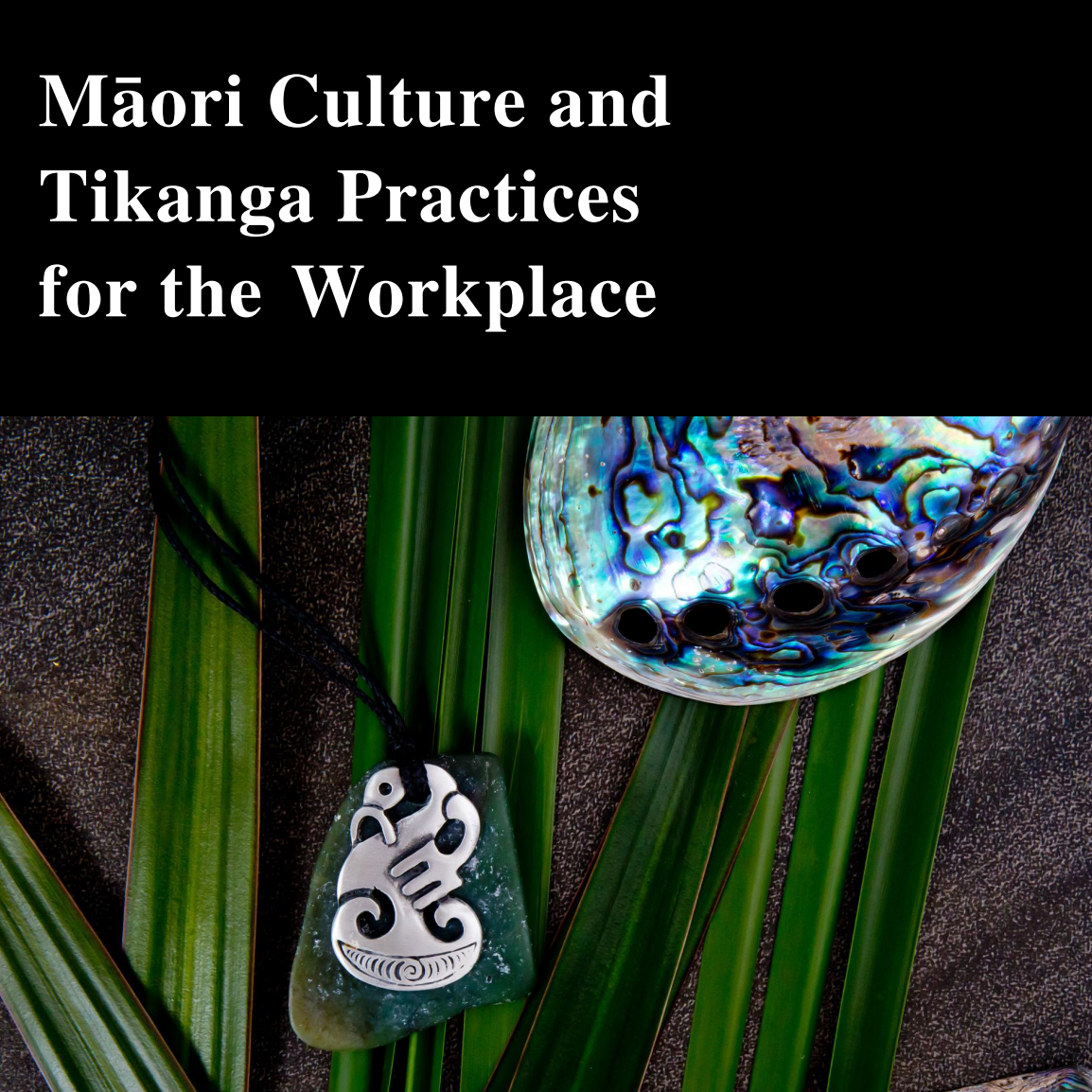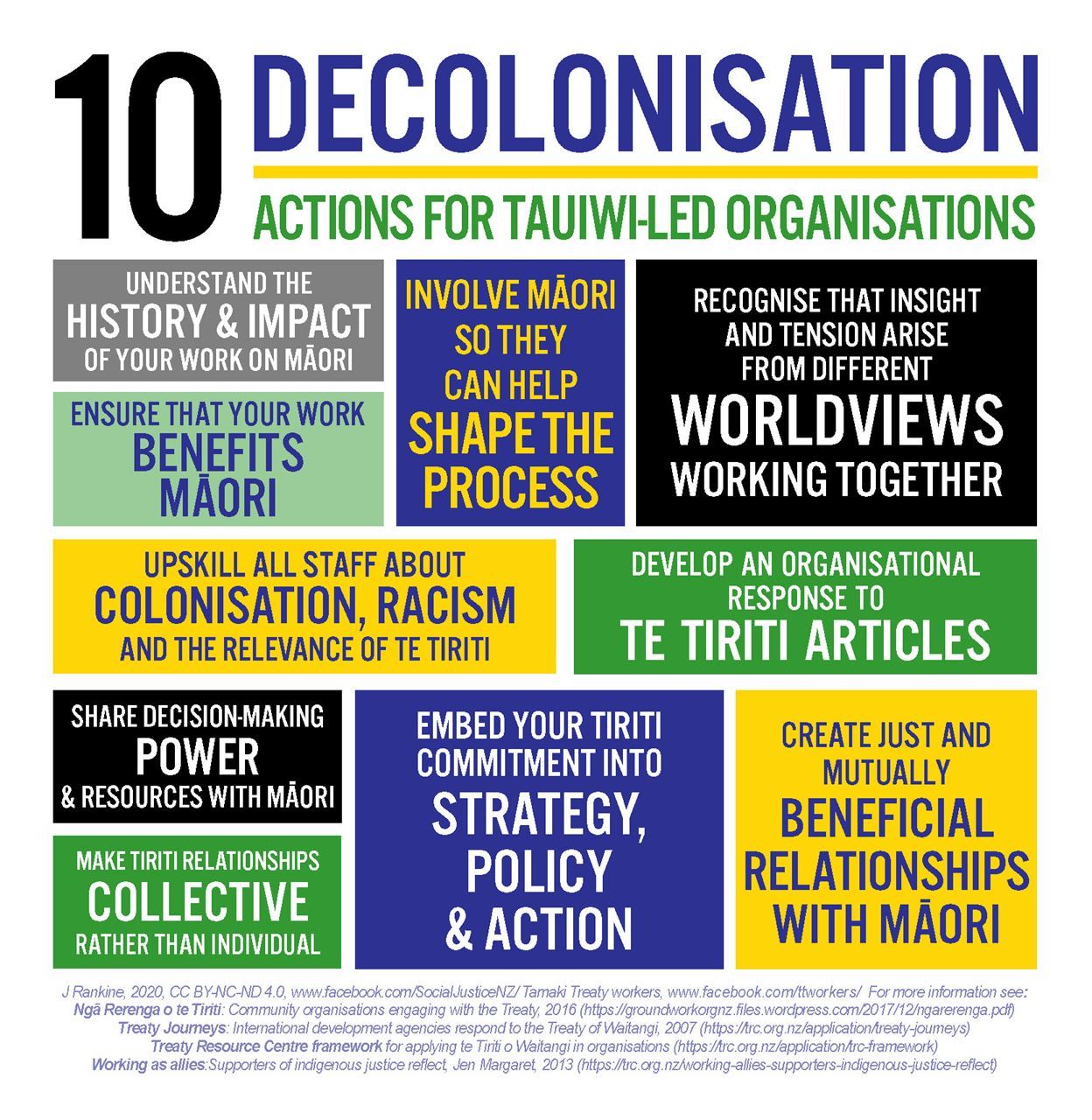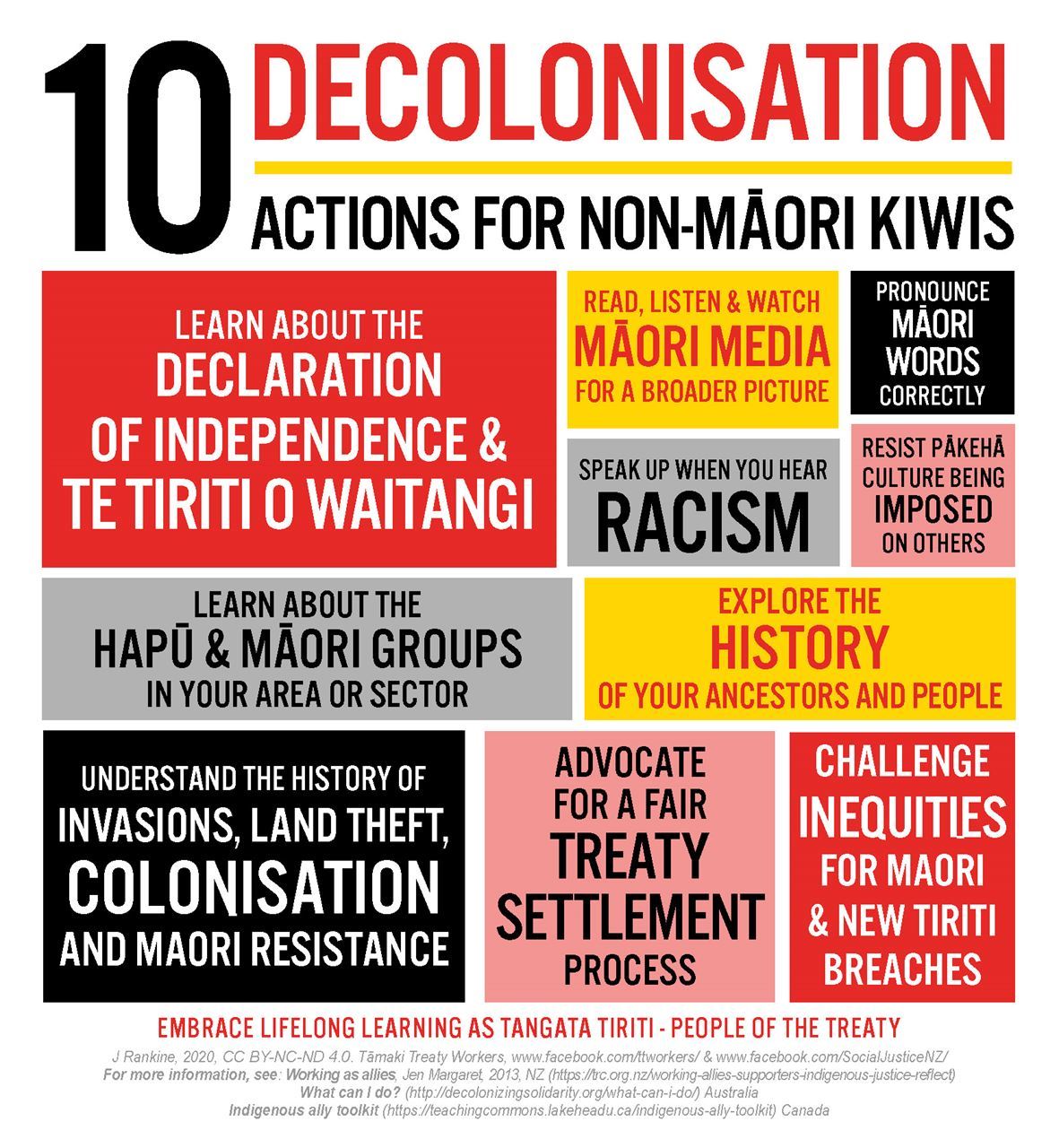Cultural Safety and Competency |
Me mahi tahi tātou mote oranga o te katoa.
We must work together for the good of all
This information was collated from a coalition of associations in New Zealand, to assist other associations in cultural safety and competency within their own organisations.
Critical te Tiriti Analysis
Critical te Tiriti Analysis (CTA) is a five-step process for policymakers, decision-makers, advisory groups and interested citizens to strengthen and review public policy in relation to the articles and provisions of te Tiriti o Waitangi (the Māori text signed in 1840).
CTA evaluates the strength of Māori participation in policymaking and the extent to which Māori aspirations and expectations are positioned to influence policy.
- Orientation – The first reading strives to establish if, why and how the policy refers te Tiriti, the Treaty or Treaty principles.
- Close examination – The second reading looks for evidence of engagement with all elements of te Tiriti.
- Determination – The process of ranking CTA indicators of the policy’s development, performance and evaluation.
- Strengthening practice – A robust critique of the policy’s positive and negative potential.
- Māori final word – A commitment to longstanding, robust, critically and culturally informed engagement with the diversity of Māori thought and aspirations.
Resources to assist organisations
Thriving as Māori and Pasifika Allied Health Professionals is a summary of the findings of a master's thesis, which looked at the first two years of practice in a DHB setting. The findings highlighted experiences, challenges and opportunities and made several practical recommendations, including cultural support, leadership, allyship and valuing unique skill sets.
Ngā Rerenga o Te Tiriti is aimed particularly at organisations that are primarily Tangata Tiriti/ Tauiwi/Pākehā in their current ways of working and who are clear that they want to engage, or enhance their existing engagement, with the Tiriti.
It does not contain background information about the origins of the Tiriti and its content, colonisation and its impacts, or the imperatives for community organisations to engage with the Tiriti.
While organisations must understand this background, other resources already exist.
Te Arawhiti Engagement Framework and Engagement Guidelines assist agencies in thinking about engaging with Māori, specifically who and how. These contain immediate, practical, and implementable advice.
Treaty Voyages – How’s your organisation faring: Research and practical guidance for organisations applying Treaty of Waitangi principles.
Cadetships (tpk.govt.nz) Cadetships, Te Puni Kōkiri’s Cadetships programme was established in 2010 to support kaitono (employers) to develop, mentor and train their permanent Māori staff at all career stages into higher-skilled roles. The Cadetships programme aims to support Māori to achieve their full potential in the workplace and contribute to thriving, innovative and resilient businesses.
Te Tiriti workshops – or tailored solutions Te Tiriti Training Board and senior team along with our Kaitiaki from Te Tiriti partner we had 2 workshops that were facilitated by two people from STIR. Two facilitators (one Māori; one Pakeha). And can be very much a tailored workshop on co-governance options for the organisation. https://www.stirnz.org/ This website also has a range of resources Tu Tira Mai Cultural advice and guidance to build capability in staff. We apply a Te Ao Māori lens to raise cultural confidence through in-house, online and marae-based wānanga (training). Te Reo lessons The Treaty Resource Centre The Treaty Resource Centre often offer Te Tiriti-based training in Auckland, although you may have to book the training for a group rather than sign up individually. Included is access to further resources: Digital Resource Library Search: These resources, from the Treaty and antiracism movements, relate to events and actions from the 1960s to the present day. They come from several collections held by TRC that are presently digitised. Also contact Associate Professor Veronica Tawhai - Pukenga Tiriti - Massey University He Karanga ki ngā Ringa Hāpai - Decolonisation Learning Group Meets on third Friday each month. | Website Link Check your Pākehā Privilege has a wealth of resources that help us around how colonisation impacts Aotearoa, how antiracism works, reflect on our privileges and uphold our responsibilities to Te Tiriti o Waitangi. Resources include links to books, podcasts, essays, films, and groups. There is an opportunity for reflection and ideas for what you can do after learning more about colonisation and racism. Background reading Te Tiriti o Waitangi compliance in regulated health practitioner competency documents in Aotearoa From gorse to ngahere: an emerging allegory for decolonising the New Zealand health system Educational resources to promote understanding of Te Tiriti throughout Aotearoa STOP Institutional Racism (STIR) s a social movement committed to te Tiriti o Waitangi and exposing and ending institutional racism in the health system. It contains links to useful resources (books, blogs, websites, videos), including the past and current Te Tiriti-based futures + antiracism webinars. The 2020 webinars include topics such as sovereignty, a vision for race relations, structural racism and systemic inequity, intersections between race, gender, class, sexuality and ableism and the declaration on the rights of indigenous peoples. Treaty2u links you to the collections held at Te Papa Tongarewa and provides historical background reading to the signing of the Treaty and Tiriti. Imagining Decolonisation Decolonisation is a term that alarms some, and gives hope to others. It is an uncomfortable and often bewildering concept for many New Zealanders. ACC Cultural Safety and Competencies. See also Te Whānau Māori me ō mahi Guidance on Māori Cultural Competencies for [ACC] Providers This website has useful resources and reading https://www.stirnz.org/resources |
What other associations are doing
ACE (Association of Consulting Engineers) | HRNZ - (Human Resources New Zealand) THE PATH - The new Capability Framework | New Zealand Speech-Language Therapists Association | Should you have any anything to add please feel free to contact the New Zealand office |
Teaching Te Tiriti o Waitangi | Te Tiriti o Waitangi, colonisation and racism | Te Tiriti – Take action: Become a dynamic Treaty partner |
This page was put together with information and assistance from
Siobhan Molloy, Executive Director - Kaiwhakahaere Matua New Zealand Speech-language Therapists' Association
Helen Sullivan, Executive Director New Zealand Audiological Society
Helen Davidson, CEO ACE New Zealand
Sandra Kirby, Chief Executive Physiotherapy New Zealand
Nick McKissack, Chief Executive Officer HRNZ
Tina Wieczorek, Chief Executive Officer Scaffolding, Access & Rigging NZ Inc
Ana Pickering, Executive Director LIANZA Te Rau Herenga
o Aotearoa
Brett Jeffery, General Manager AuSAE New Zealand
Contact us: Email: info@ausae.org.au |








